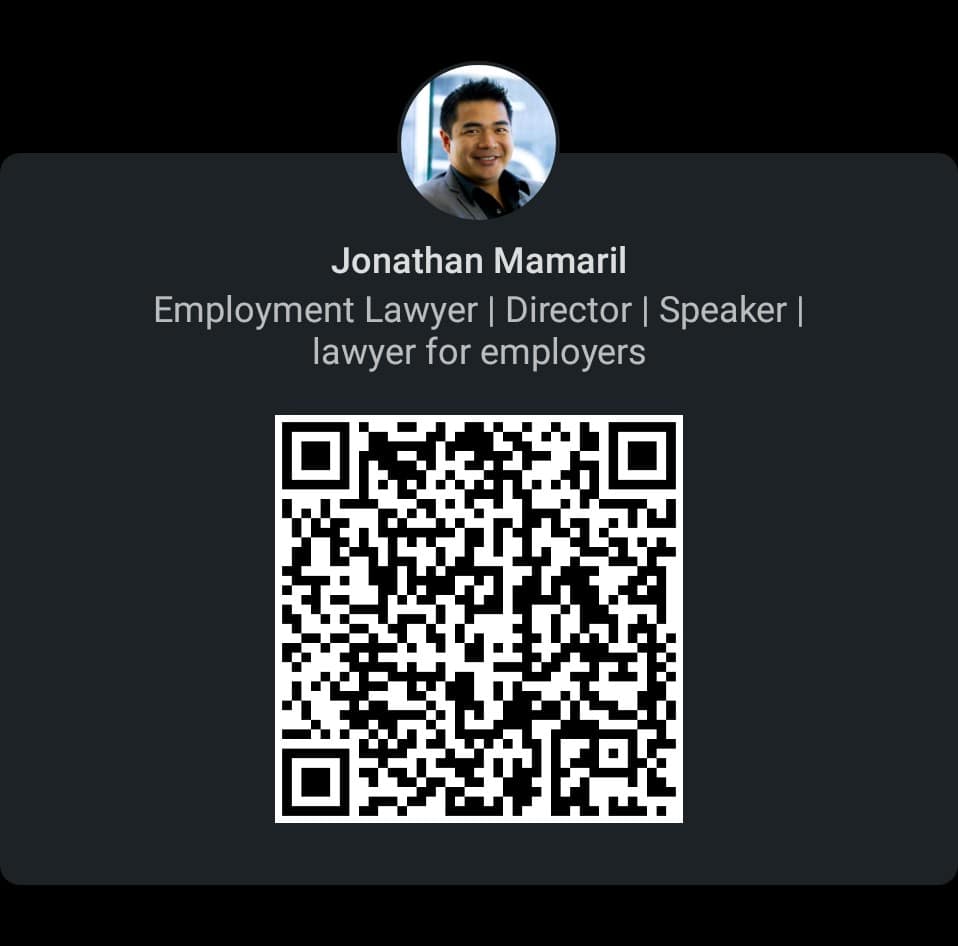
The issue of mandatory vaccines or compulsory vaccinations has become a significant issue for Employers. There have been some mixed messages coming out from the media and keeping up to date with changes from Government mandates can be difficult.
The Queensland Police Service (QPS) and the Queensland Industrial Relations Commission (QIRC) Full Bench decision has garnered a lot of attention. As a request from a number of clients, referral partners, contacts, friends, HR and human resources managers we have provided some commentary below on this extraordinary case.
Brasell-Dellow & Ors v State of Queensland, (Queensland Police Service) & Ors [2021] QIRC 356 – the Queensland Police Service Case
A decision which is one of the first in Australia to directly deal with the COVID-19 Vaccination (in terms of being mandatory or compulsory) and a refusal by a number of Queensland Police officers (and non policing staff) to refuse a direction requiring staff members to be vaccinated is an interesting and helpful one for Employers.
There were some exemptions to this direction namely:
- Medical reasons;
- Religious grounds;
- Other exceptional circumstances.
The effect of the policy directive meant that those police officers and staff who did not fall within an exemption and refused to be vaccinated by 23 January 2022 would be suspended without pay (or potentially dismissed).
Grounds for Application
To be clear the grounds of the application were not because it was akin to “medical apartheid and segregation” or that the policy was abhorrent in nature. Many of the applicants (and there were 60 of them) refused to follow the policy for many different grounds some relied upon not being given enough time to put submissions in on why they should be exempt and others relied upon internet research on the vaccine.
The applications relied on 3 main grounds:
- The failure by the Commissioner of Police to consult with employees before making a direction breaching the relevant industrial instruments;
- The failure to consult under workplace health and safety laws;
- There was no power for the Commissioner of Police to make the direction without seeking a variation to the relevant industrial instruments
Failure to Consult
The Full Bench relied upon previous case law in regards to consultations especially in Queensland. Consultation in their view was only in relation to “production, program, organisation, structure or technology”. This was in contrast to the direction around mandatory vaccinations being a health concern and a response to a health issue.
The Full Bench went on to state that the direction is to require staff of the Queensland Police Service to be vaccinated against COVID-19 to enable them to undertake police service work. As such, the consultation obligations under the industrial instruments were not relevant and not required in this regard.
Failure to consult under workplace health and safety
There is a workplace health and safety obligation for business to consult as far as is reasonably practicable with workers who are likely to be directly affected by a matter relating to health and safety.
The Queensland Police Service took a number of steps with their more than 17,000 employees including:
- Email correspondence and posts on the QPS intranet setting out the intentions of the Commissioner
- Publications including videos, capability statements and commentary about the directive
- A frequently asked questions page was set up
- Workplace health and safety committee meeting was convened which included the unions
- Consultations with the unions representing employees of the QPS
- Provision of the Policy to staff
The Queensland Industrial Relations Commission Full Bench found that in their view there were numerous opportunities to have input, there were opportunities for the unions representing the employees to have input and as such the consultation obligations under health and safety were satisfied.
Seeking variation to Industrial Instruments
The third ground relied upon was that the requirement to be vaccinated must be a term or condition of employment. As the requirement to be vaccinated did not appear in the relevant awards or certified agreements, the applicants argued that a variation was required before a direction could be made.
The issue of a reasonable and lawful direction then came to the fore. An understanding (or at least a more wider one) led to the conclusion by the QIRC that a direction could be made to ensure employees are vaccinated because it was reasonable to do so. In addition, there was no illegality in doing so. Other legislation such as the Police Service Administration Act 1990 was considered and found there was an avenue for an employee to refuse for a “reasonable excuse”’. The exemptions covered this.
The QIRC found that the Commissioner of Police did have scope of power to issue such a direction.
The Queensland Industrial Relations Commission were clear, they dismissed the Application made by the 60 or so employees.
What does this decision mean for Employers?
There are several points to make as a result of this decision and although previous cases have already pointed in this direction, (please read our previous articles on this subject by clicking here) the QIRC Full Bench have gone a further step in assisting business and Employers understand what they need to do. Although the Police Service arguably is front line and the need to be operationally ready was essential there are takeaways we can extract in considering this decision.
- Don’t assume – Whatever your view on vaccinations and whether they should or shouldn’t be mandatory. Any assumption is fraught with danger. Steps should be taken to reduce risk and liability
- Process and steps – there are a number of steps that should be taken. The first is an understanding of what would constitute a reasonable and lawful direction – that requires a review of the industry, workplace health and safety risks and compliance under industrial instruments
- Consultation – if your Company comes under the coverage of an award or enterprise agreement there may well be consultation obligations to comply with. Even if there isn’t, a consultation could be utilised to show steps taken to for example take reasonably practicable steps
- Consider the objections – a careful consideration of the objections is required. An understanding of what reasonable adjustments are required will also be needed.
- Get advice – the ever changing legal landscape will lead to a number of unfair dismissal or general protections claims, understanding mandates in place and what steps are to be taken will reduce risk and liability. The drafting of the policy itself will need to consider a number of factors – a prime one being any discrimination issues that are placed on the business.
This is a difficult issue – however we have provided a lot of content, guidance and advice to Employers on this subject. Get in touch and we can help.
Reach out via [email protected] or +61 (07) 2102 6412 to book an obligation free consultation.
If you got value out of this article email [email protected] or click on this link to subscribe to our value added newsletter.
Written By
Director
NB Lawyers – Lawyers for Employers
Jonathan Mamaril leads a team of handpicked experts in the areas of employment law and commercial law who focus on educating clients to avoid headaches, provide advice on issues before they fester and when action needs to be taken and there is a problem mitigate risk and liability. With a core value of helping first and providing practical advice, Jonathan is a sought after advisor to a number of Employers and as a speaker for forums and seminars where his expertise is invaluable as a leader in this area as a lawyer for employers.



